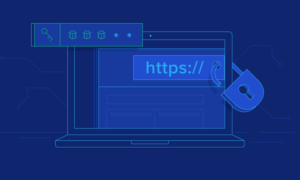Concerns about safety rank high on the issues brought up when discussing data center services. But why does security matter so much?
It’s hard to overestimate the significance of safety. However, understanding why security is so important reveals why many companies spend so much on data and location security. Here are some of the primary reasons why security is so important:
Security protects visitors and staff.
When thinking about the value of workplace safety and security, your first consideration should be your employees. Staff members have resumed their regular duties, and business traffic is up 84%. This means you must find out how to ensure the security of your busy office.
Visitor management solutions track, filter, and report visitors to your office. You can also monitor the time and presence of employees at your company. Your visitor management system can filter visitors before they enter your office, preventing unwanted guests and security breaches. Tools are available to assist you, such as blocklists and ID verification. You may also create particular conditions for visitors, such as vaccination proof when they arrive on-site.
System and data security
Cyber threats have escalated considerably in recent years. So much so that, despite a rise in cybersecurity events (reported by 65% of organizations), most top-level managers have no idea what to do about it. And this is why cyber security is so crucial.
Because of technology and information exchange, digital security has more potential dangers now than ever. In response, businesses must implement concrete measures to safeguard their information. The first step in improving your company’s cybersecurity is to assess its current state of exposure. You’ll be able to pinpoint your areas of improvement and set realistic goals. Your staff may be risking sensitive data by mishandling data or using unauthorized equipment, public WiFi, or email. Finding the source of your security holes can speed up fixing them.
Security restricts building access.
People have different motivations for visiting your business premises. It may be one of the last candidates coming in for an interview or a maintenance worker coming in to repair the doors to the conference room. Monitoring and limiting access levels for each visitor is crucial as your office grows busy. Remember that not everyone will need the same authorization levels to enter and move about within the facility.
Your buildings and workers will be safer with access control installed. It has a wide range of possible manifestations. Badges, Quick Response (QR) codes, face recognition, and Touch ID are some of the most common. With access control, businesses can oversee security at any or all of their facilities. You can decide who is allowed into your facility and to what extent, giving you peace of mind that your employees, customers, and possessions are safe.
Safety ensures compliance.
In addition to ensuring a safe and secure workplace, businesses must also have a firm grasp of the many rules and regulations that pertain to employees at work. Your organization’s sensitive information and data should be a top priority when you develop your compliance guidelines. Workplace compliance is a major priority, but staying on top of ever-evolving rules and regulations may be difficult.
Failure to comply with regulations is bad for business and expensive as well. The average cost of non-compliance is at a stunning $14.82 million worldwide. Keep up with industry-specific compliance requirements, and conduct frequent internal audits to identify weak spots.















































